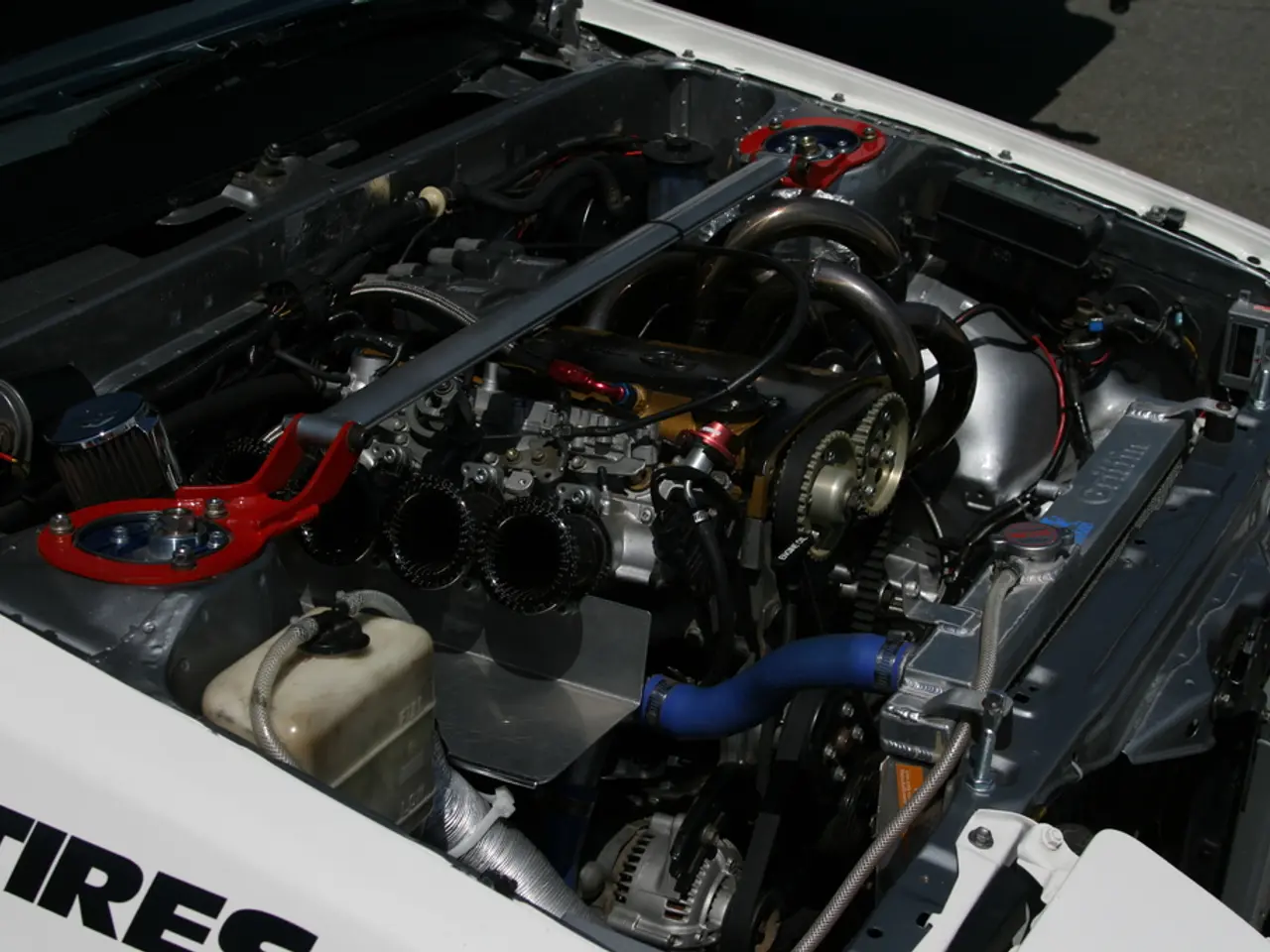Tesla appears unreceptive to the current solid-state battery trend, as indicated by the actions of CATL and Panasonic.
Tesla Focuses on Evolutionary Battery Improvements as Solid-State Technology Remains Elusive
In the rapidly evolving electric vehicle (EV) industry, Tesla is making strides in battery technology, but the company is not betting on the unproven solid-state batteries just yet. Instead, Tesla is focusing on improving lithium-ion batteries with advancements like high-nickel cathodes, tabless 4680 cells, and structural battery packs.
Recent developments in lithium-ion batteries have enabled Tesla to increase energy density while lowering production costs. These advancements are expected to translate to more range, faster charging, and lower cost per mile in Tesla vehicles.
However, the electric vehicle (EV) industry has been excited about solid-state battery technology, promising double the range, faster charging, and improved safety. But, Tesla's two largest battery suppliers, Panasonic and CATL, are signaling that solid-state batteries are not yet ready for mainstream EV use due to key challenges in scaling production and cost.
Panasonic's CTO noted that solid-state batteries are currently only practical for niche uses like drones or small power tools rather than large, high-capacity EV battery packs. The technology promises high energy density (up to 500 Wh/kg), improved safety, and longer range, but the solid electrolyte is very expensive to manufacture, and mass production with the durability required for EVs remains years away.
CATL, despite a decade of research and pilot prototypes, also cautions that wide adoption of solid-state batteries is not imminent. The main real-world challenges for solid-state battery technology in EVs are scaling up manufacturing, as solid electrolytes can be brittle, making durability under vibration and temperature swings a big unknown.
In response to these challenges, Tesla is instead focusing on more mature and cost-effective technologies. One such technology is lithium iron phosphate (LFP) batteries, for which Tesla has signed a major $4.3 billion supply deal with LG Energy Solution for LFP batteries starting in 2027. LFP batteries offer advantages in cost, safety, and align well with Tesla's cost-driven strategy and U.S. regulatory incentives under the Inflation Reduction Act.
Tesla is also advancing nickel-based and ternary lithium battery technologies for higher energy density and durability, leveraging established manufacturing infrastructure. While other automakers like Nissan are working toward solid-state battery production and aim to launch vehicles with such batteries by around 2028, Tesla appears cautious, choosing to wait for the technology to mature before adopting it broadly.
The real battlegrounds for the EV industry are faster charging and lower production costs. Tesla's focus on improving lithium-ion batteries for Tesla models could be a strategic move to deliver more range, faster charging, and lower cost per mile without waiting on the unproven solid-state technology.
References:
- CATL Cautions Wide Adoption of Solid-State Batteries is Not Imminent
- Panasonic's CTO: Solid-State Batteries for Tesla Cars Aren't Likely Anytime Soon
- Tesla Signs $4.3 Billion Lithium Iron Phosphate Battery Deal with LG Energy Solution
- Nissan Aims to Launch EVs with Solid-State Batteries by 2028
- Tesla's Focus on Lithium-Ion Batteries Could be a Black Swan Opportunity in the EV Market
- In the realm of business and personal finance, Tesla's focus on improving lithium-ion batteries could prove to be a profitable opportunity, as solid-state technology remains elusive.
- The electric vehicle (EV) industry and data-and-cloud-computing sectors are closely watching Tesla's advancements in lithium-ion battery technology, particularly the high-nickel cathodes and tabless 4680 cells, for potential investing prospects.
- Wealth-management firms are interested in energy-focused businesses, and the improvements in energy density and lower production costs of lithium-ion batteries may attract more investments for Tesla in the finance industry.
- As Tesla is working on nickel-based and ternary lithium battery technologies for higher energy density and durability, strategists in the business world suggests that these advancements could provide a competitive edge for Tesla in the global EV market.




